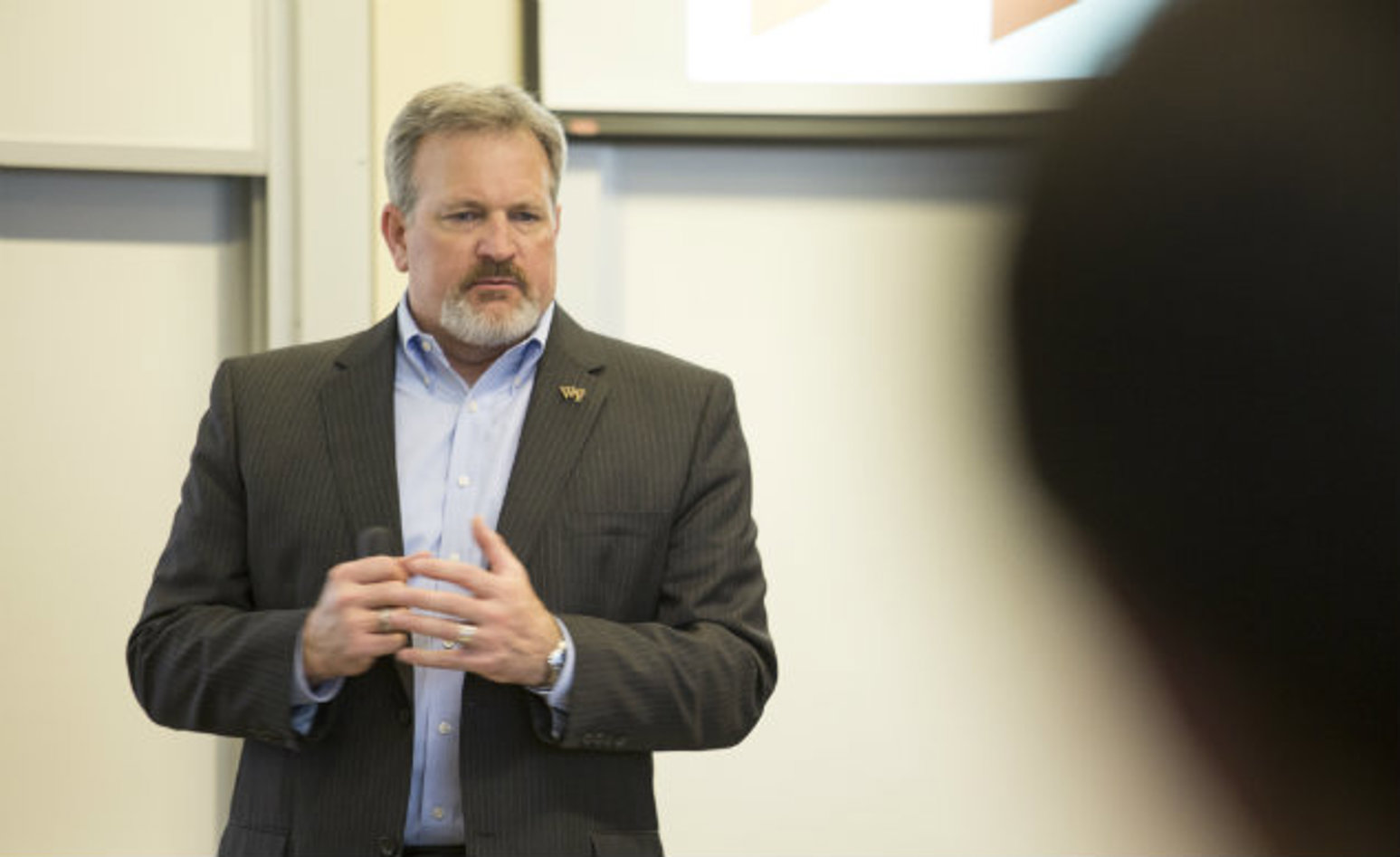September 11, 2001, or 9/11, is often called the day the world stopped turning.
The death and destruction that occurred from what’s considered the worst series of terrorist attacks on American soil in U.S. history nearly brought the country to its knees.
Yet Resource Services Washington, an office of the U.S. Army at the Pentagon, carried on as usual, despite losing 34 of its 45 employees in the attacks.
Sean Hannah, who was then with the U.S. Army, led the rebuilding of Resource Services Washington and its processes and systems and wondered what motivated those survivors to get back to business the day after the attacks. That curiosity led him to pursue a scholarly career researching what drives leaders who get results. He brings a unique perspective on leadership, having served 26 years with the U.S. military in several different leadership roles.
Related to this story
The retired U.S. Army colonel is now a Professor of Management and Executive Director of the Center for Leadership and Character at the Wake Forest University School of Business in North Carolina. Hannah shared insights from his research with Ivey faculty, PhD students, and researchers on March 20 for the Ivey Research Series, as a special guest of Ivey’s Ian O. Ihnatowycz Institute for Leadership. Some of Hannah’s research was done in partnership with Ivey Assistant Professor Ann Peng who is the Troost Professor in Leadership.
Hannah’s research looks at the locus of everyday leadership: where does leadership come from, how do leaders communicate, and what are the results.
“I’ve seen some great leaders in action in difficult situations and some very poor leaders in action under tough situations so I began to identify some of the key factors that might produce effective exemplary leadership,” he said.
Here are five learnings he shared about leaders and leadership:
- Duty calls – What drives firefighters to risk their lives by entering burning buildings? The same thing that prompted the Pentagon’s Resource Services Washington survivors to return to work after 9/11. A sense of duty. Hannah said people tend to honour and be dutiful to what they respect, whether it be members of a group, a mission, or the principles or codes of a group.
“When you have a sense of duty, it takes away part of the decision-making process. There is less that you have to consider,” he said.
- Character counts – Character in leaders is a critical source of influence and involves the leaders demonstrating enduring positive qualities such as moral or psychological strength or wisdom.
“Character asserts an authoritative stance in leaders,” he said.
- Abusive leaders alienate themselves – On the other end of the spectrum, when leaders are abusive, their followers are less likely to internalize the values of the organization. If a leader treats only one person badly, rather than the whole group, that person may feel inadequate, said Hannah.
- Different strokes for different folks – People demonstrate different attributes in each of their roles. For instance, the attributes of people in leadership roles may differ from their attributes in parental or spousal roles.
- Leaders have complex brains – Hannah has used neuroscience to study the brains of successful leaders and found they have complex brains. This makes leaders better able to adapt to new roles and display different attributes in each role. A person who is less complex may demonstrate the same attributes across all roles. For instance, a successful military leader might easily be able to shift from military combat to a negotiator role, yet each role requires different skills, knowledge, and self-awareness. Whereas others may excel at military combat, but lack negotiating skills.
“The more complex you are as an individual, the more flexible you are, so you adapt and perform better in your environment,” he said.



